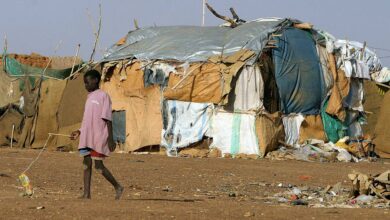Israel’s Russian-speaking community shuns Putin

By Joan Mas Autonell
Jerusalem, Mar 9 (EFE).- ‘Putin Pub’, a popular bar among Jerusalem’s Russian-speaking community, has been stripped of its name since Russia’s invasion of Ukraine shook the world.
Nestled in Jerusalem’s downtown Yafa Street, the bar’s sign was changed to ‘Pub’ on February 24, after its anti-war owners set out to distance themselves from Russian president Vladimir Putin’s views and actions.
“We changed the name as a political statement,” co-owner Leon Teterin tells Efe.
The Russian invasion of Ukraine has sent shockwaves across Israel, which is home to 1.2 million people who migrated to the Jewish state after the Soviet Union collapsed in the 1990s.
Israel’s Russian diaspora is of Jewish heritage, very secular, and has traditionally sided with right-wing Israeli nationalists.
The community has continued to pass on their language through the generations and many shop signs are in Russian. Some television channels, such as Channel 9, broadcast entirely in Russian.
Nikolai, a 72-year-old manager of office buildings in Jerusalem, who arrived in Israel three decades ago, says he still has acquaintances in Ukraine and is “very concerned” about the situation.
“Putin is a disgrace and a fascist, he is doing the same as Hitler,” he tells Efe.
According to Moscow-born Israeli journalist and former MP Ksenia Svetlova, criticism of Putin is widespread among Russian-speaking Israelis.
“The community is very much united about what is happening, there is no division between Ukrainians and Russians,” Svetlova says. “The vast majority of the people feel immense sympathy to the Ukrainians and also to Russians who protest against the war in Russia.”
“There is a lot of fundraising, a lot of humanitarian aid that is being collected,” the journalist adds.
According to Svetlova, Russian-speaking Israeli doctors and psychologists have rallied to offer free assistance to Ukrainian refugees.
Since Russia first launched its invasion of Ukraine two weeks ago there have been up to six demonstrations in Tel Aviv.
“The majority were Russian speakers, but there were also many Tel Avivians and native Israelis who followed the situation,” Svetlova continues.
The journalist says it is remarkable given that “Russians are not known for the mass attending of demonstrations.”
Hundreds of thousands of people of Jewish descent still live in Russia and Ukraine.
Since the conflict began, the Jewish Agency has evacuated many refugees from Ukraine and Israel has already welcomed hundreds.
The Israeli government expects some 100,000 Ukrainian people with a right to Israeli citizenship will soon move to the country, despite the moderate approach it has taken since the war began.
Israel has ties with both Kyiv and Moscow and has so far positioned itself as a mediator for negotiations.





